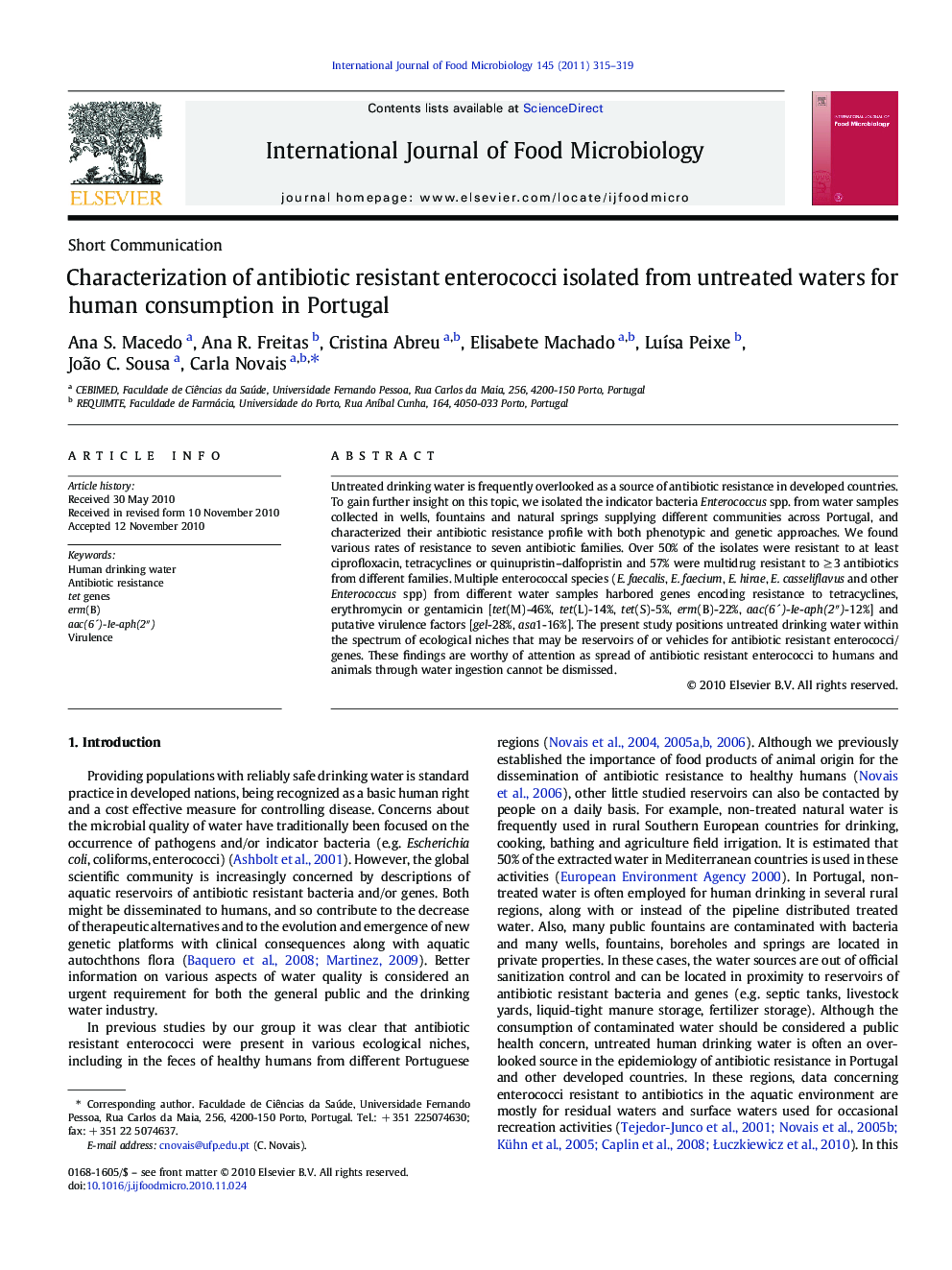| Article ID | Journal | Published Year | Pages | File Type |
|---|---|---|---|---|
| 4368759 | International Journal of Food Microbiology | 2011 | 5 Pages |
Untreated drinking water is frequently overlooked as a source of antibiotic resistance in developed countries. To gain further insight on this topic, we isolated the indicator bacteria Enterococcus spp. from water samples collected in wells, fountains and natural springs supplying different communities across Portugal, and characterized their antibiotic resistance profile with both phenotypic and genetic approaches. We found various rates of resistance to seven antibiotic families. Over 50% of the isolates were resistant to at least ciprofloxacin, tetracyclines or quinupristin–dalfopristin and 57% were multidrug resistant to ≥ 3 antibiotics from different families. Multiple enterococcal species (E. faecalis, E. faecium, E. hirae, E. casseliflavus and other Enterococcus spp) from different water samples harbored genes encoding resistance to tetracyclines, erythromycin or gentamicin [tet(M)-46%, tet(L)-14%, tet(S)-5%, erm(B)-22%, aac(6´)-Ie-aph(2″)-12%] and putative virulence factors [gel-28%, asa1-16%]. The present study positions untreated drinking water within the spectrum of ecological niches that may be reservoirs of or vehicles for antibiotic resistant enterococci/genes. These findings are worthy of attention as spread of antibiotic resistant enterococci to humans and animals through water ingestion cannot be dismissed.
Research Highlights►Non-treated human drinking water (NTHDW) has antibiotic resistant (ABR) enterococci. ►Several tet genes, erm(B), aac(6′)-Ie-aph(2″) were dispersed in water samples. ►This is one of the few studies of ABR enterococci from NTHDW of developed countries. ►This study adds NTHDW to the environmentally relevant reservoirs of resistant bacteria.
